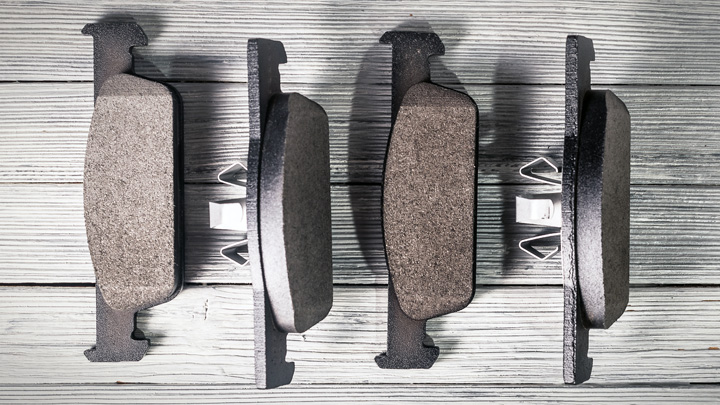Ceramic vs Organic Brake Pads (How Do They Compare?)
The brake pads of an automobile are what grip the disc brake rotor in order to allow the driver to slow down and stop the vehicle. While semi-metallic brake pads are the most popular brake pad type, they aren’t necessarily the best brake pads.
Two common, and arguably better, brake pad types are organic brake pads and ceramic brake pads. Here’s a comparison including pros and cons of each.

See Also: Brake Pad Comparison Chart
Ceramic Brake Pads
Ceramic brake pads will certainly last a lot longer than organic brake pads. They are less abrasive on the brake rotors which means they won’t get worn down so much when the brakes are applied.
As for the dust that gets created, there is still some dust but the color is lighter and it won’t stick to your wheels as much.

Ceramic pads will even maintain their performance while enduring all kinds of temperature changes. So, if you want reliable brake pads for an economy class car then ceramic is the way to go.
Now on the downside, ceramic brake pads are more expensive than organic brake pads. Ceramic brake pads also not as strong as semi-metallic brake pads, but they are stronger than organic.
This means that ceramic pads may not be ideal if you drive a big vehicle like a full-size truck or SUV. For those, you will probably want some sort of metallic brake pads.
Related: How Long Should Brake Pads Last?
Organic Brake Pads

Natural materials such as rubber and glass are used to manufacture organic brake pads. Sometimes there’ll even be Kevlar put into the mix as well.
The thing people like the most about organic brake pads is that they are softer than ceramic brake pads. When you press down on the brake pedal with organic brake pads, it will be very quiet. They also don’t cost a lot to manufacture which means they are very affordable for the average car owner.
If you are someone who usually just drives around their local community and doesn’t do much long distance driving, then organic is the way to go. Otherwise, these brake pads get worn down very easily and generate a greater quantity of brake dust than other materials.
They can also overheat very quickly, causing you to lose friction when the brakes are applied heavily under regular conditions (such as autocross or “spirited” driving).
If you are driving a small, lightweight vehicle, then perhaps organic brake pads will be more suitable for you. Otherwise, you may want to consider using ceramic brake pads instead.
See Also: Common Symptoms of Faulty Brake Pads
Conclusion
Overall, ceramic and organic brake pads are good and reliable pads for small to medium size vehicles. The biggest differences are in their lifespan and price.
If you want something cheap for a car you’ll drive a little bit, then go with organic. If you want brake pads for a car that you use every day to go to work, then use ceramic.
- Replace the Engine or Replace the Car? (11 Factors to Consider) - Apr 11, 2024
- Plastic Piece Dragging Under Your Car? (What It Is and What To Do) - Mar 21, 2024
- Timing Belt vs Timing Chain (What’s the Difference?) - Feb 27, 2024
